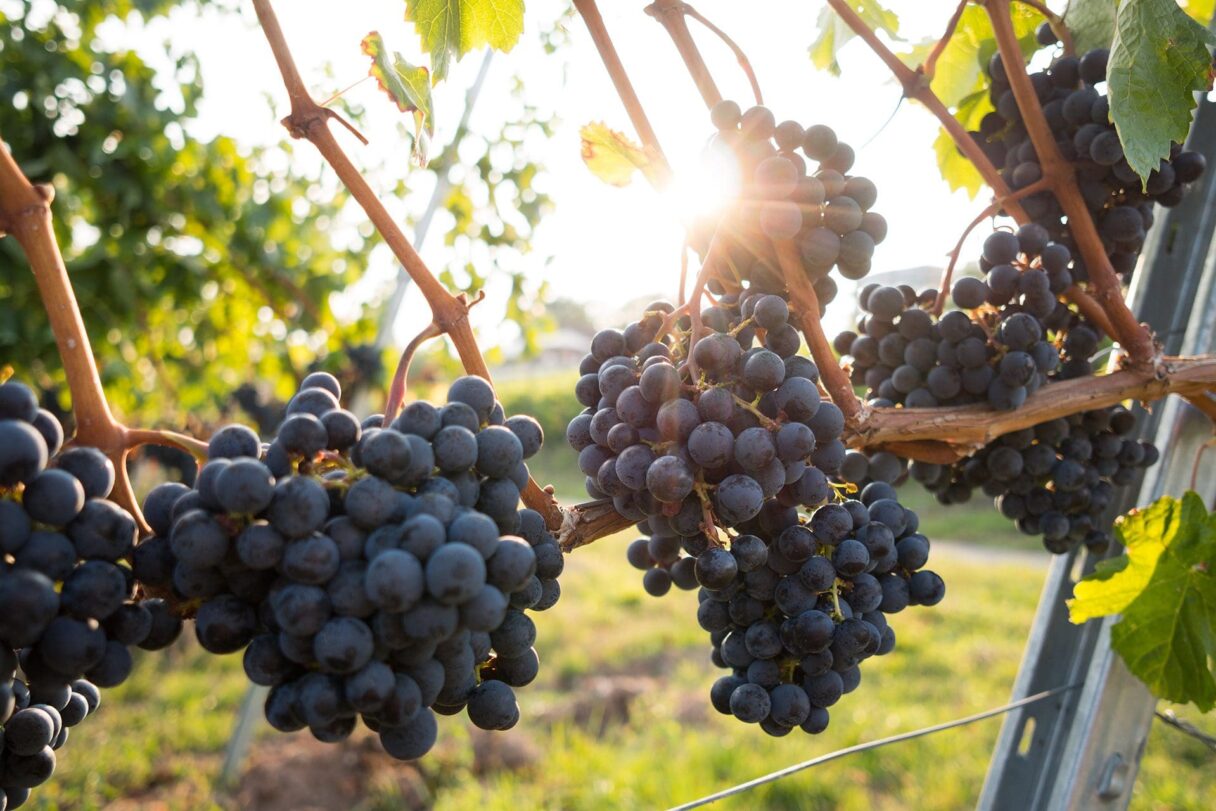
The wonderful world of viniculture can be confusing enough at the best of times but, if your diet goes heavy on the natural and organic, why should your drinks cabinet be any different? But, when it comes to organic wine, where do you start?
Well, let’s start with origins. As you may have guessed, only certified organic grapes are used, and the farming process does not include artificial chemical fertilisers, pesticides, fungicides, or herbicides. The result? A fuller expression of the grape itself and the terrain in which it was grown, promising a more authentic flavour palate.
Yes, organic wine may be a little more expensive (the harvesting period is shorter and the lack of artificial pesticides means the growing process is a little more difficult) but wine aficionados and sommeliers champion not only the taste, but the relative health benefits too, with organic wines featuring fewer sulphites, additives, and less added sugar – and, consequently, less painful hangovers.
With a wealth of knowledge, Giuseppe D’Aniello, head sommelier at The London Edition, has worked in the wine industry for over ten years and, along with his team, has curated a specialist wine list of 800 labels covering most regions of the world, including organic varieties. Here D’Anellio shares his know-how, from what to look for to the ins and outs of the farming process, and where to buy the best organic wines.

What is organic wine and how does it differ to traditional wine?
An organic wine is a wine made from grapes organically grown with minimum intervention in the vineyards. There are very strict rules regarding pesticides and other substances that can be used when growing these wines to allow them to be classified as ‘organic’. For me, the main difference is the sustainability element of the wine, since it focuses on the environment and the particular growing process rather than just the final product.
Are organic wines sulphite-free?
Sulphites are chemical compounds found naturally in certain types of foods, preservatives and chemical fermentation processes. When it comes to wine, they are mainly used to limit diseases that affect the harvest of grapes. Some people are more sensitive than others to these chemicals and may get headaches after drinking only a single glass of wine, hence, organic wines with less sulphites being preferable.
Not all organic wine is sulphite free because some grapes produce sulphites during the fermentation process. However, organic wines do contain a lot less sulphite compared to conventional wines because, by law, the amount is strictly controlled to ensure it is appropriately classified.

How can you tell if a wine is organic?
Besides the label, you can’t really tell if a wine is organic just from the look or taste, but the location of origin can be helpful. For example, organic wines require viticulture which is more successful in drier, warmer countries, such as Greece or the South of Italy, rather than in cold, humid countries such as Germany.
What should you look for in an organic wine?
I always look for the certification behind the label so you can be sure by law that the wine has been made in a sustainable, organic way. Also, look for smaller producers and avoid larger companies that produce on a big scale. To do so, I usually support small or independent wine shops with a more specific selection, rather than supermarkets. Above all, I believe good organic wines are clearly defined by flavour, showcasing the grape health before and after harvesting.
Where can I find good organic wines?
In the UK, there is a great selection of organic wines. I personally go to specialist wine shops, such as Dynamic Wine or Majestic, but you can find organic wines in supermarkets – just look for the certification on the label. Be aware, however, that a bottle of organic wine is usually more expensive than a bottle of regular wine. Expect to pay about 25 per cent more.
Why are they more expensive?
Organic wines typically have smaller harvests due to the lack of fertiliser and pesticide use. In addition, the use of damaged grapes is prohibited meaning both sowing and harvesting are done manually, without the aid of machinery.

Is organic wine good for the environment?
Definitely! In many certified organic wine estates and wineries there is a specific goal to achieve biodiversity, rather than monoculture. In organic vineyards, there is just more life around!
What should I pair with organic wine?
There's no difference from conventional wine in terms of pairing. With organic wine, there is always a full flavour so my suggestion is to try and keep it local. For example, if I’m having a steak from Argentina, I would try to have a wine that comes from that region, such as Malbec. Or if I’m having fresh mozzarella from Campania, I would pair it with a bottle of Fiano from Southern Italy.






